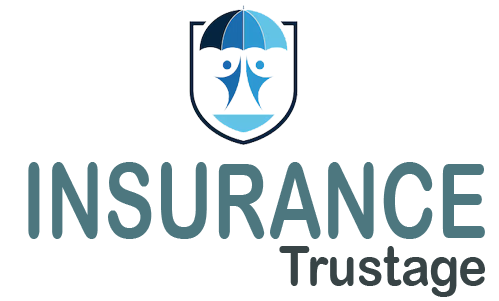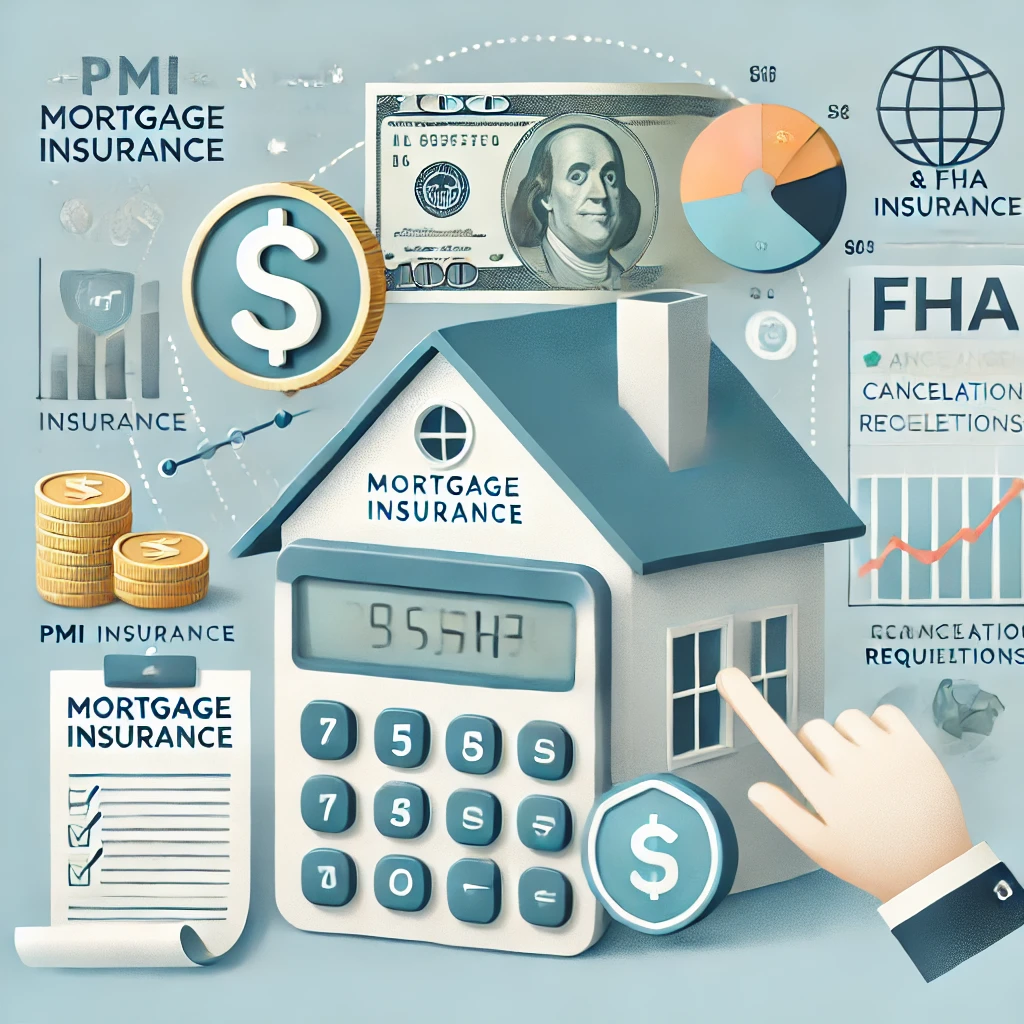What is mortgage insurance, and why is it required?
Mortgage insurance is a type of insurance that protects the lender if a borrower defaults on their mortgage payments. It is typically required when a homebuyer makes a down payment of less than 20% of the property’s purchase price. By reducing the risk for the lender, mortgage insurance enables buyers with smaller down payments to qualify for home loans they might not otherwise afford.
Mortgage insurance is required because it compensates the lender in case the borrower fails to make payments and the home enters foreclosure. Without a substantial down payment, the lender faces higher financial risk. Mortgage insurance mitigates that risk, allowing lenders to approve loans for borrowers who may not have the traditional 20% equity upfront.
How does Private Mortgage Insurance (PMI) work?
Private Mortgage Insurance (PMI) is designed to protect lenders when a homebuyer makes a down payment of less than 20% on a conventional mortgage. Since a smaller down payment increases the risk to the lender, PMI acts as a safety net in case the borrower defaults on the loan. The borrower pays PMI premiums, usually as part of their monthly mortgage payment, though some lenders may offer the option to pay it upfront or through a combination of both.
PMI remains in place until the borrower has built enough equity in the home, typically reaching 20% of the home’s value through mortgage payments or home appreciation. Once that threshold is reached, borrowers can request the cancellation of PMI, reducing their monthly mortgage costs. In some cases, PMI may automatically terminate when the loan balance drops to 78% of the original home value, providing further financial relief.
When can I stop paying for PMI on my loan?
You can stop paying Private Mortgage Insurance (PMI) once you’ve built enough equity in your home, typically when your loan balance reaches 80% of the original value of the home. At that point, you can request your lender to cancel PMI. To do this, you’ll need to contact your lender and provide a written request. In some cases, the lender may require a home appraisal to confirm the current value of your property before they remove the PMI.
If you don’t request cancellation, PMI will automatically end once your loan balance drops to 78% of the home’s original purchase price. Additionally, if you’ve reached the halfway point of your loan term (for example, 15 years into a 30-year loan), PMI must also be removed, even if you haven’t hit 78% equity yet. This automatic termination helps ensure you’re not paying for PMI longer than necessary.
What is the difference between PMI and FHA Mortgage Insurance?
The key difference between Private Mortgage Insurance (PMI) and FHA mortgage insurance is that PMI is used for conventional loans with less than a 20% down payment, while FHA mortgage insurance is required for all FHA loans, regardless of the down payment size. PMI can be canceled once you reach 20% equity in the home, but FHA mortgage insurance usually lasts for the life of the loan if your down payment is less than 10%. Additionally, FHA requires both an upfront premium and annual payments, while PMI is typically paid monthly.
How much does mortgage insurance typically cost?
Mortgage insurance typically costs between 0.3% and 1.5% of the original loan amount per year, depending on factors like the loan type, down payment, and borrower’s credit score. For example, on a $200,000 loan, this could range from $600 to $3,000 annually, which is divided into monthly payments. FHA loans also require an upfront mortgage insurance premium (usually 1.75% of the loan amount) in addition to annual premiums.
Can I avoid paying mortgage insurance if I make a large down payment?
To avoid paying mortgage insurance, you generally need to make a down payment of 20% or more of the home’s purchase price on a conventional loan. With a down payment of 20% or higher, lenders consider the loan less risky, so Private Mortgage Insurance (PMI) is not required.
Another way to avoid PMI without a large down payment is by using a “piggyback” loan (80-10-10 loan), where you take out a second mortgage to cover part of the down payment. However, making a substantial down payment remains the simplest and most direct way to avoid mortgage insurance.
Is mortgage insurance tax-deductible?
Yes, mortgage insurance premiums can be tax-deductible, but this depends on your income and current tax laws. As of recent tax years, you may deduct Private Mortgage Insurance (PMI) and other mortgage insurance premiums (such as FHA or VA premiums) if your adjusted gross income (AGI) is below $100,000. For those with an AGI between $100,000 and $109,000, the deduction is phased out.
However, mortgage insurance deductibility is subject to changes in tax laws, and it’s important to check with a tax professional or consult the most recent IRS guidelines to confirm if you’re eligible for this deduction in a given tax year.
Does mortgage insurance protect the borrower or the lender?
Mortgage insurance primarily protects the lender, not the borrower. It ensures that if the borrower defaults on their mortgage payments, the lender will receive compensation for part of the financial loss. This protection reduces the lender’s risk, especially when a borrower makes a smaller down payment, typically less than 20%.
While mortgage insurance doesn’t provide direct benefits to the borrower, it enables them to qualify for a home loan with a lower down payment, which can make homeownership more accessible. However, it doesn’t shield the borrower from foreclosure or loan repayment obligations.
What are the options for paying mortgage insurance (monthly, upfront, etc.)?
Mortgage insurance payments can be structured in several ways, allowing borrowers to choose an option that best fits their financial situation:
- Monthly Premiums: This is the most common payment method, where the mortgage insurance premium is added to the monthly mortgage payment. This allows for smaller, more manageable payments over the life of the loan.
- Upfront Premiums: Some loan programs, like FHA loans, require an upfront mortgage insurance premium, which is typically rolled into the loan amount. This means borrowers can finance the cost rather than paying it out of pocket at closing.
- Combination Payments: Some lenders may offer a combination of upfront and monthly premiums. Borrowers can pay a portion upfront and the remaining amount in monthly installments, balancing immediate costs with ongoing payments.
- Single Premium: This option involves making a one-time payment for the mortgage insurance at closing, covering the entire premium for the life of the loan. This can be beneficial for borrowers who prefer to avoid ongoing monthly payments.
These options provide flexibility, allowing borrowers to choose the method that best aligns with their financial goals and cash flow needs.
How does home equity impact the need for mortgage insurance?
Home equity plays a significant role in determining the need for mortgage insurance. When a homeowner builds equity in their property, it reduces the lender’s risk, which can lead to the cancellation of Private Mortgage Insurance (PMI). Typically, once the homeowner’s equity reaches 20% of the home’s value, they can request to have PMI removed. This can occur through regular mortgage payments, home appreciation, or a combination of both.
If the home’s value increases or if the borrower pays down the mortgage balance, reaching that 20% equity threshold allows them to eliminate PMI, resulting in lower monthly payments. Conversely, if the homeowner’s equity decreases—due to falling home values or increased loan balances—PMI may still be required until the homeowner can regain sufficient equity. This dynamic underscores the importance of maintaining and increasing home equity to reduce or eliminate mortgage insurance costs.
Understanding mortgage insurance is crucial for homebuyers, especially those making smaller down payments. Private Mortgage Insurance (PMI) and FHA mortgage insurance serve distinct purposes and have different costs and cancellation policies. By knowing when PMI can be canceled and the options available for mortgage insurance payments, borrowers can make informed decisions. Additionally, recognizing how home equity impacts the need for mortgage insurance can help homeowners manage their financial responsibilities effectively. Ultimately, being educated about mortgage insurance can lead to significant savings and better financial planning for prospective homeowners.


